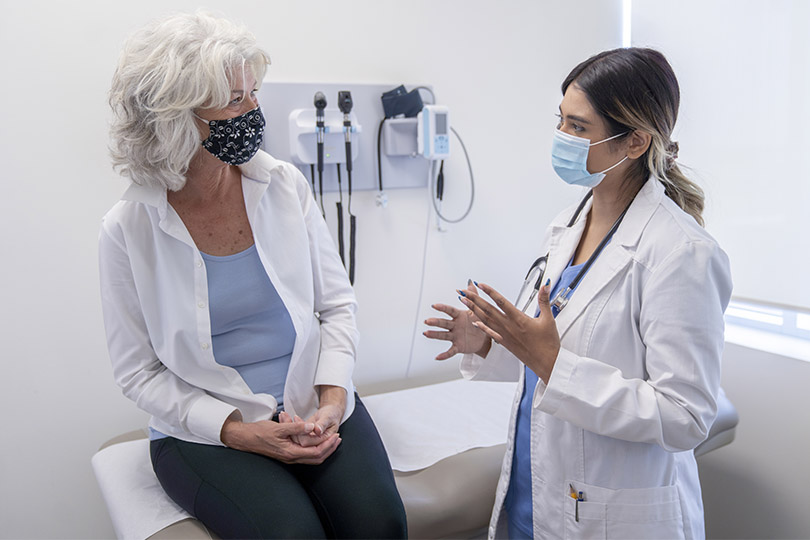Common Nephrology Patient Questions
Appointments
Kidney Disease Frequently Asked Questions
If you learn you have kidney disease, you’re likely to have many questions. Here are answers to some questions we are often asked.
One job of your kidneys is to filter waste from your blood. This cleaning process takes place in small blood vessels in the kidneys. If your blood pressure is too high, it can damage these blood vessels, making it hard for your kidneys to do their cleanup work properly.
There are several things you can do to help control your blood pressure:
- Avoid smoking.
- If you choose to drink alcohol, drink no more than one small drink each day.
- Eat a diet that is low in salt.
- Maintain a healthy weight.
- Stay physically active.
Some people need medicine to control blood pressure. If your blood pressure is high, your physician will help you determine the best way to lower it.
The stages of chronic kidney disease are determined with a blood test that shows how much kidney function you have. This is done by estimating the glomerular filtration rate (GFR). The lower the GFR, the more severe the kidney disease.
Most patients should be seen by a nephrologist when their GFR is less than 45ml/min. This corresponds to stage 3b chronic kidney disease.
The stages of kidney disease are outlined below:
- Stage 1: Kidney damage with normal kidney function (GFR >90ml/min)
- Stage 2: Kidney damage with mild decrease in kidney function (GFR 60-89ml/min)
- Stage 3a: Mild to moderate decrease in kidney function (GFR 45-59ml/min)
- Stage 3b: Moderate decrease in kidney function (GFR 30-44ml/min)
- Stage 4: Severe decrease in kidney function (GFR 15-29ml/min)
- Stage 5: Kidney failure (GFR< 15ml/min)
Usually dialysis is needed when the GFR is less than 10-15ml/min and a patient has symptoms related to shortness of breath, confusion, loss of appetite, nausea, vomiting and itching.
There are many home monitors you can use to check your own blood pressure. Follow the product’s instructions and these tips from the American Heart Association:
- Empty your bladder and avoid exercise, smoking and caffeine at least 30 minutes before taking your readings.
- Sit calmly for at least five minutes before checking your blood pressure.
- Make sure your back is straight and your feet are flat on the floor.
- Put your arm on a flat surface that allows your upper arm to be at heart level.
- Take several readings at least one minute apart and record your results.
- Don’t place the blood pressure cuff over your clothing.
Hemodialysis is done using a dialysis machine that removes waste products, and fluid from your blood several times each week. In order to get blood into the dialysis machine, patients require a catheter (a tube) that is placed in a large vein or a fistula (an artery and a vein are joined by a surgical procedure).
During peritoneal dialysis, blood is cleaned inside your body. A catheter is placed in the abdomen and the abdomen is filled with fluid. Waste products and fluid move from the blood stream into this fluid and are drained out.
Kidney stones develop when small deposits of calcium and/ or uric acid form in your kidneys.
Some patients are predisposed to forming kidney stones and can benefit from a metabolic evaluation for this as they may need specific treatment to prevent further stones from forming.
To start, here are a few good ones:
- What should my blood pressure be?
- How often should I get my blood pressure checked?
- Do I need to change my diet?
- How often should I see you?
- How will my kidney disease be monitored?

